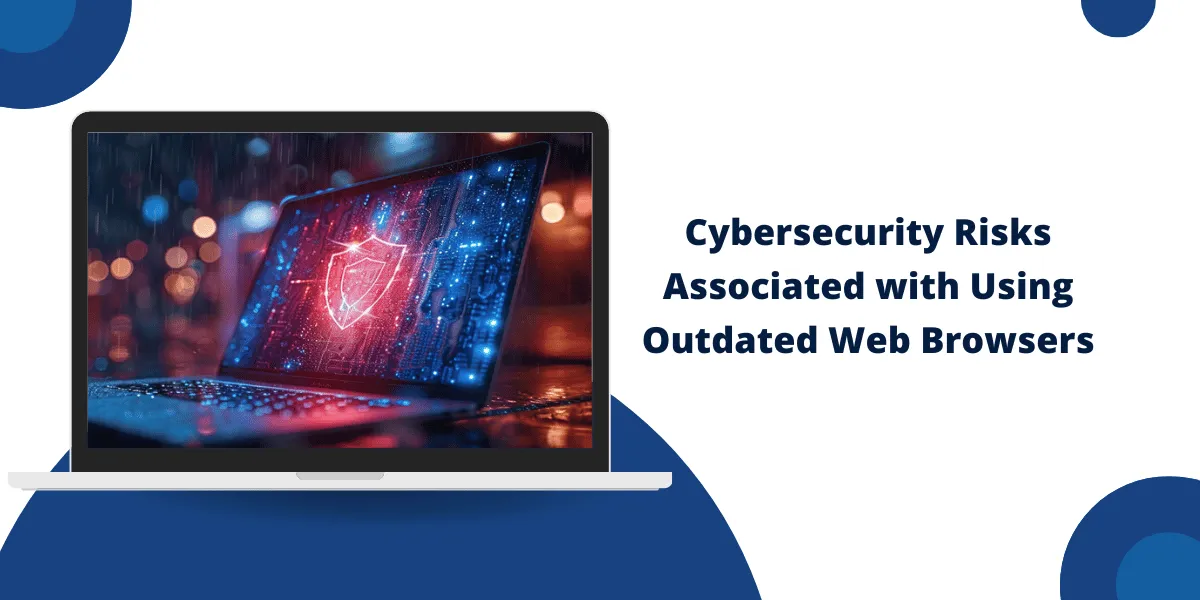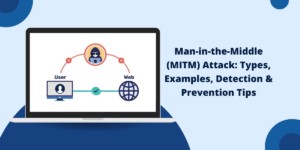Why Updating Your Browser is Crucial for Security
The Internet serves as the gateway to communication, information, and entertainment. But it is dangerous to be venturing online with an outdated web browser, regardless of the browser you are using. For instance, even if you are using a secure browser like Safari, you should update my Safari browser whenever there’s an update ready to be installed.
Since the risk of cyber threats looms large, venturing online with an outdated web browser is strictly forbidden. Continue reading to know the cybersecurity risks associated with it.
Understanding Web Browsers And Security Updates
Web browsers are software apps that translate website code into the visual content you see on your screen. They play an important role in online security by acting as the first line of defense against malicious attacks and websites.
Security vulnerabilities are weaknesses or flaws in software that can be easily exploited by attackers to gain unauthorized access to a device and steal confidential data. Like any software, web browsers are constantly evolving and updates are released regularly by developers to patch these vulnerabilities.
Why Are Outdated Browsers Vulnerable?
Using an outdated browser exposes you to cybersecurity risks. Here’s why:
- Unpatched vulnerabilities: Outdated browsers don’t have the security patches included in newer versions. These security patches address known vulnerabilities that malicious actors can exploit to steal data, inject malware, or hijack your browsing sessions.
- Outdated security protocols: Browsers depend on security protocols like encryption to safeguard your online transactions and communication. These latest security protocols might not be supported by outdated browsers, making it easier for attackers to intercept and steal your data.
- Compatibility issues with secure websites: Websites prioritizing security require updated browsers to function properly. Outdated browsers might be unable to render secure websites correctly, hindering your access.
What Are The Common Cybersecurity Threats Targeting Outdated Web Browsers?
- Malvertising: Malicious advertisements can infect your system with malware if they are successful in exploiting the vulnerabilities in your outdated browser.
- Man-in-the-Middle attacks: These attacks take place when a malicious actor intercepts user communication with a website. Since outdated browsers have weak encryption protocols, it makes it easier for attackers to succeed with such attacks.
- Phishing attacks: These deceptive websites or emails designed to steal your personal information or login credentials become much more effective when your web browser lacks the required security features to detect them.
Exploring The Real-World Consequences Of Using Outdated Browsers
- Data breaches: Many major data breaches in recent years have involved malicious actors exploiting vulnerabilities in outdated web browsers. This can expose your financial data, personal information, and even login credentials.
- Financial loss: Viruses or malware downloaded via an outdated browser can steal your financial information. It can even redirect you to fraudulent websites, resulting in potential financial loss.
- Identity theft: Attackers can steal your login credentials if you are using an outdated browser. They can use your credentials to impersonate you on other websites.
- Ransomware attacks: The gateway for ransomware attacks is outdated browsers. Here, attackers encrypt your files and demand a ransom to decrypt them.
How Can You Stay Secure?
The single most effective way to mitigate the cybersecurity risks discussed above is keeping your web browser updated. You can enable automatic updates to ensure you receive and install security patches the moment they are available. If you don’t want to enable automatic updates, you can check manually whether an update is available and then install it as soon as possible. But you must do this manual check regularly.
Besides updating your web browser, it is recommended you stay aware of the latest vulnerabilities and cybersecurity threats. You can even consider using a more security-focused browser than the one you are currently using.
Other security steps to adopt when browsing the web are:
- Use unique and strong passwords for each online account and turn on 2FA or MFA.
- Beware of suspicious attachments and links. Never click on them without verifying their source.
- Install antivirus software on your device to enjoy additional protection against malware.
- Avoid using public Wi-Fi for activities like online banking. However, if it is unavoidable, use a VPN.
- Along with your web browser, you must always keep your operating system updated.
Final Thoughts
The Internet is a fabulous place offering boundless opportunities for communication, business, and entertainment. But you must not make the mistake of venturing online with an outdated web browser, or you will be inviting cyber threats into your digital world. Cyber attackers are constantly seeking ways to exploit vulnerabilities, and browsing online with an outdated browser means you are giving them the opportunity on a plate.
So, take proactive steps like keeping your web browser and operating system updated so you can thwart such cyber threats.
It is also important to remember that cybersecurity is an ongoing process. Stay informed of the latest threats and stay protected. All the best!
Frequently Asked Questions
Why are outdated web browsers a security risk?
Outdated browsers often have security vulnerabilities that are fixed in newer versions. Using old browsers leaves you exposed.
What are some of the main cybersecurity risks with outdated browsers?
Vulnerable to malware, phishing attacks, data breaches, lack of encryption, easy for hackers to exploit.
How often should you update your web browser?
Experts recommend updating your browser frequently, at least every 6 months or when new versions are released.
What browsers tend to be most secure?
Chrome, Firefox and Edge are among the most secure options today thanks to frequent updates and modern standards.
If I only use my browser for basic tasks, do I need to update?
Yes, you should still update even if you only use it for basics like web browsing and email. Vulnerabilities can still compromise you.

Priya Mervana
 Verified Web Security Experts
Verified Web Security Experts
Priya Mervana is working at SSLInsights.com as a web security expert with over 10 years of experience writing about encryption, SSL certificates, and online privacy. She aims to make complex security topics easily understandable for everyday internet users.



